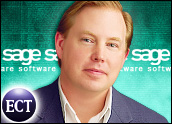
Salesforce.com is the proverbial face that launched a thousand ships. The company is largely — and deservedly — credited with ushering the software-as-a-service movement into the 21st century and lifting CRM out of the doldrums that plagued companies such as Siebel Systems in the late ’90s. The result has been a tidal wave of new on-demand applications in the CRM industry, with the Salesforce.com AppExchange acting as an axis of the Enterprise 2.0 ecosystem.
All of which got me asking myself two important questions: What were the market forces that created the “perfect storm” to make on-demand CRM so popular, and does the rise of on-demand CRM packages forecast a similar rise for Sales Compensation Management?
Along with the rest of the CRM sector, Sales Compensation Management experienced a slowdown over the last few years, but has come back strong with the advent of new on-demand applications. In fact, a 2004 Gartner report on the category didn’t include any on-demand vendors; an update released in August 2006 included four. Why is that? For starters, the proliferation of high-speed Internet connections has reached a level where heavy-duty Web applications can run just about anywhere.
Back in 2004, people who worked outside the office were still at the mercy of dial-up Web access, but today just about every coffee shop has a WiFi connection. A second factor is psychological: Advances in encryption have radically improved security, and as the Web has moved from the exotic to the mundane as a business tool, most users of Sales Compensation Management systems no longer suffer from hackaphobia when working outside the corporate firewall.
Enterprise Systems Expensive and Complex
Still, it would be overly simplistic to suggest that changes in technology are the sole factor in the growth of the on-demand market. Rather, the failure of enterprise software systems, which have long been the dominant paradigm in the sales compensation management field, is the primary engine of change. Enterprise systems require companies to pay millions of dollars for software and then spend even more money buying the hardware to support it and paying high-priced consultants to make it work.
In contrast, on-demand systems enable software and data to be hosted remotely and accessed by company employees through the Internet. That’s it. There’s no need to buy three or four hundred thousand dollars’ worth of new servers — or pay an equal amount in annual maintenance fees — to support an application, because that’s all taken care of off-site. As an added bonus, new features, updates and even new versions can be rolled out without the added expense of having to buy and install a new software package.
It seems pretty obvious to me that on-demand systems should be the industry standard. After all, they’re cheaper to buy, easier to integrate, don’t require expensive ongoing maintenance and can be accessed from any Internet-connected computer on the planet. And if the growth of on-demand CRM over the last three years is any indication, Sales Compensation Management may get lifted by the same tide. That’s because both of them target the same audiences: sales professionals.
Therefore, the markets, as measured by number of users, should be the same size, right? Wrong. Sales Compensation Management solutions also target finance professionals, meaning that their potential user universe actually is much larger than CRM.
A Powerful Sales Incentive
Mind you, the importance of managing customer relationships shouldn’t be underestimated, but an argument can be made that the management of sales compensation has an even greater value to an organization. Effectively managing customer relationships ensures that a company’s sales reps always know the status of customer engagements and opportunities. To quote Martha Stewart, that’s a good thing — but effectively managing sales compensation is a great thing because it ensures that sales reps will be incentivized to sell more of a company’s most profitable products.
Salesforce.com’s AppExchange is proving to be a great way for Salesforce.com users to identify and select on-demand solutions that complement their CRM deployment. According to Salesforce.com’s own research, “sales commissions” was the second-most requested application on AppExchange in the second quarter of 2006, with 30 percent of the sales respondents reporting that on-demand commissions management will be of interest to them in the next 12 to 18 months. The reason? There is natural synergy between on-demand CRM and on-demand Sales Compensation Management that is not found in other application categories. Customers are realizing that to have one without the other is illogical.
Despite their tremendous value to an organization, sales reps often have to be prodded to use CRM systems. On the other hand, they absolutely love using Sales Compensation Management solutions. This is hardly a surprise: After all, there is a very powerful desire among business professionals to pay special attention to any issue which may have an impact on their personal compensation.
The growth of on-demand has also democratized the sales compensation industry by making great tools available to smaller and mid-sized companies. Historically, Sales Compensation Management solutions have only been available to the very largest companies that could afford enterprise-level applications. Like the CRM category when Siebel dominated the market, SCM solutions were sold on a license basis for many millions of dollars and implemented at the customer site over a period of 12 to 18 months.
Today, companies of all sizes can afford an on-demand Sales Compensation Management solution, and thanks to the multi-tenant, SAS 70 Type II certified nature of the most advanced on-demand SalesCompensation Management systems, customers can expect high availability, great security and optimum performance at a very reasonable cost.
The 100 percent on-demand model will continue to be a key driver of success in the on-demand Sales Compensation Management category, just as it has been in the on-demand CRM world. If anything, the on-demand Sales Compensation Management market has a huge advantage in that the on-demand model is far more accepted in the marketplace today than it was just two to three years ago.














































I would have to agree with comments made within this article, hosted CRM Software is the way of the future. It is the way of today in many industries, however the original benefit of hosted CRM Software which rocketed its popularity is being forgotten by some vendors like Salesforce.com. The low cost of implementing and maintaining hosted CRM Software is no longer such a low cost with some vendors, software can now come with many hidden costs forcing clients to upgrade to a more expensive platform. Luckily this isn’t the way with all CRM vendors, companies like Netsuite and Salesboom.com still provide a solid platform where you pay what you expected, not the often case of paying 3-4 times what companies originally thought. It is great that hosted CRM vendors are closing the gap between on premise and hosted CRM with software advancements, but this shouldn’t mean the gap in price should close too.